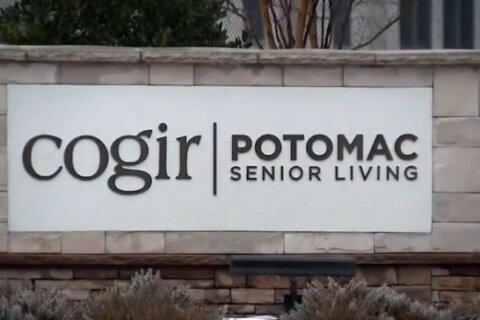Outdoor dining has been a help to restaurants around the D.C. region, though it would be a stretch to say it’s been a savior. But now, as autumn brings cooler temperatures, restaurants are trying to figure out how to provide a comfortable atmosphere to clientele antsy about eating indoors.
Montgomery County, Maryland, held an online forum for its restaurant owners to help offer some guidance in that regard, and naturally, most of the conversation focused on tents and heating them.
“We do everything from a coffee shop, which wants to put a little tent up in front, which makes perfect sense to me, to schools which wish to put classrooms outside, and those two obviously can not be the same,” said Rick Merck with the county’s Department of Permitting Services.
Right now, the county is trying to make it as easy as possible for restaurants to set up tents –though there is guidance that has to be followed.
“We are currently in the process of creating a very streamlined, very quick process for everybody else that wishes to use a tent in an outdoor process,” said Merck, who eventually joked about speaking far more in that forum than he had expected.
“We did ask that you register with DPS,” said Lynda Kobylski, who also noted that even restaurants that did so back in the spring are being asked to check in again with the county.
“We are not issuing a formal permit or charging fees, but we do ask you to register so that we can have our inspectors come out and pay a visit to your site just to make sure that everything is installed properly and per safety guidelines.”
Kobylski added that DPS did create a tent fact sheet and it is specific to restaurants and outdoor dining.
While one restaurant owner asked about taking down an awning and adding a tent that would enclose a side patio — something the county said would require a permit — there were also non-restaurant owners who chimed in with questions that covered tent policies, and in particular, how to heat them.
“What typically people think of is a type of heater people see on a deck or it comes from a big box store that typically might have a propane-fed heater, and unfortunately, those are listed only for residential use if you look at the manufacturer’s recommendation,” said Merck.
“Any open flame is not allowed under a tent.”
He said the department can provide a list of acceptable heating methods, though he noted it wouldn’t be very efficient without insulation.
“… We also have to ensure that whatever is creating the heat, the exhaust does not infiltrate under the tent,” Merck said. “So we have some very specific requirements.”
DPS plans to hold another online forum for small business and restaurant owners in December.








